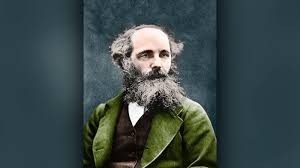
JC MAXWELL a renowned author on leadership argues that, “Everything falls and rises on leadership.”
Indeed, Maxwell’s observation seems to apply to leaders of several different institutions because leadership is about influence and impact.
Influence is what drives organisations and impact is a by-product of leadership influence.
In project planning and management, leadership is defined by the capacity of the project manager to double up leadership and management roles. It is the object of this opinion piece to explore leadership and idea coaching in project management.
A project manager is by any other characterisation a leader. However, leadership and management are not necessarily concepts that are conceptually homogeneous. Although the concepts are different, they are complementary in their outlook. In managing a project, the project manager should be both a manager and a leader.
Management involves controlling, leading, organising and directing while on the other hand, leadership comes with idea coaching, motivating, empathising, inspiring, learning, empowering, co-creation and co-decision. In planning and managing projects, the project manager ought to wear both hats of management and leadership because they are critical to building strong teams for achieving project outcomes.
In leadership and idea coaching, a project manager needs to appreciate that a project or a business is not just transactional (management), but also relational, ethical, communal and sacred (leadership).
Leadership and idea coaching stem from the realisation that while key performance indicators or data points tied to indicators are critical, those people who work towards achieving the purpose of the project are not units of production but human beings who have diverse experiences, ideas, aspirations and ideals that can be tapped into for personal and institutional growth and development.
- Public relations: How artificial intelligence is changing the face of PR
- Queen Lozikeyi singer preaches peace
- Public relations: How artificial intelligence is changing the face of PR
- Business opinion: Branding through Artificial Intelligence
Keep Reading
The philosophy of leadership and idea coaching in project planning and management comes with giving team members the opportunity to ventilate their ideas regarding how best the project can be executed to achieve its goal(s).
Essentially, in leadership and idea coaching philosophy every team member is an asset that should sweat for the success of the organisation through putting ideas on the table, ideas that can be discussed by the project manager and other team members in the light of the scope, size, budget and time-line of the project. The whole idea is to assess into the capacity of the idea for value addition.
An assessment of and into the idea brought forth by any team member may require resourcing, hence the need for buffer resources. Where buffer resources are needed, the project manager then assumes management functions of organising the resources needed to power the idea.
The project manager will also in the process motivate the initiator of the idea to keep on thinking as if there is no box. When hybridisation of leadership and management is considered in project planning and management, an endowment effect and ownership experience are engendered.
An endowment effect is a sense of protecting what one has already, while ownership experience is a king and keen sense of being proud of possessing something.
Research has largely shown that ownership experience brings about a spirit of communal self in project planning and management.
The ownership experience that comes with an idea that has been built into the health of the overall project serves as a colossal engine for the stimulation of growth.
It is important for a project manager to embrace that in his or her leadership and management roles, he or she is also a group process manager. A project manager should have an insight into the areas of gifting (knowledge and skills) of his or her team members so that he or she can deploy their skills-set adroitly.
Team members may not always have the necessary skills at any given time because of the volatile, uncertain, complex and ambiguous (VUCA) environment in which they are implementing their project. For example, artificial intelligence (AI) has disrupted systems and organisations by replacing human effort with digital ingenuity.
AI is a living argument of a VUCA environment that project leaders must appreciate and feel comfortable being uncomfortable in a turbulent environment. Only project managers that cannot think further than their noses will see AI as a challenge instead of viewing it as an opportunity for upskilling and reskilling their team members.
In some organisations, AI has been associated with professional earthquakes but in others AI has been viewed as a mortar of transformation for data driven decision-making.
In leadership and idea coaching, a project manager can view VUCA’s four components of volatile, uncertain, complex and ambiguous in a positive way that mirrors vision for volatile, understanding for uncertain, clarity for complex and agility for ambiguous.
In every dark cloud there is a silver lining, project leaders should not, therefore, look at VUCA with a sense of trepidation.
In the light of leadership and idea coaching, volatilities that come with a VUCA world should be sources for creative thinking and leadership teaming.
- Nicholas Aribino is a student of Project Planning and Management at the Zimbabwe National Defence University. He writes in his personal capacity.











